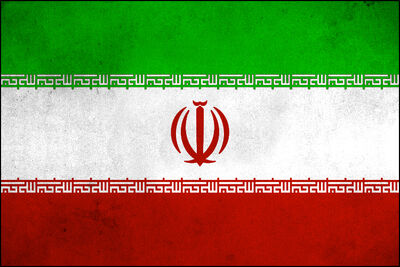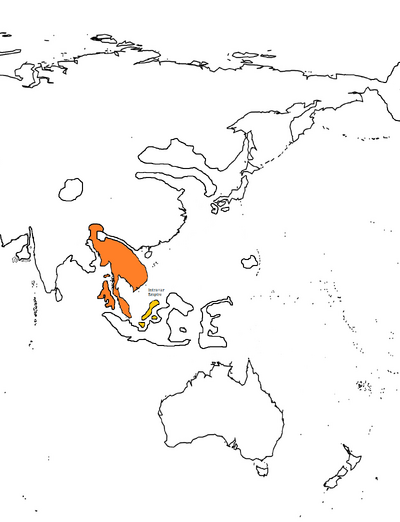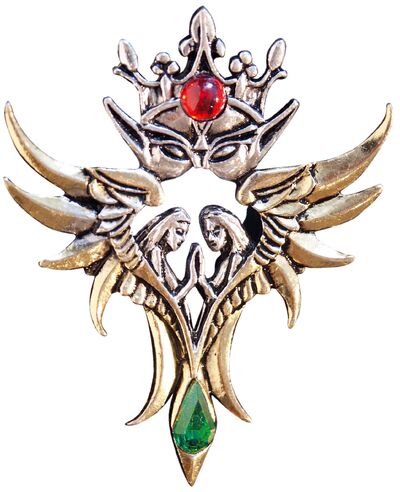
Qun is a vast Empire in the southeastern section of the Asian continent. Qun is populated by the humanoid Kossith of whome are a larger version of the human race with several distinct differences physically and even more mentally. Qun is the lone state that worships the Qun god and this has shaped much of the both domestic, and foreign policies of the Kingdom of Qun.
An important concept in the Qun is the idea of "Asit tal-eb"—"It is to be": the idea that everything and everyone in the world has a nature, and all these things come together to form a proper order—such as the locust devouring crops. It is every individual's choice whether or not they act according to their nature and the nature of the world, or oppose the proper order, and as such fight against themselves and the world. The individual is not truly "individual", but part of the whole. Their own nature contributes to the larger nature of the world, and so their struggle against self-balance disrupts the balance of the whole, thus hurting themselves. Because of this, society is not considered artificial, but part of nature.
Geography[]

The Qun Empire was founded on the island of Stantipore where they came to dominate this island over the course of several generations before expanding to mainland Asia. Recently they have become the dominant power over the Istravar Empire where they have basically made them a puppet regime under their control.
Stantipore[]
See Also : Stantipore
Singapore[]
See Also : Singapore
Laos[]
See Also : Laos
Par Vollen[]
See Also : Par Vollen
History[]
Early History[]
Goverment[]
Triumverate[]
Arishok[]
Arigena[]
Ariqun[]
Culture[]
Religion[]

Society[]
The primary symbol used to represent the Qunari as a people is a triangle, which symbolizes the Qunari triumvirate of body, mind, and soul. The "body" is represented by the Arishok (the military), the "mind" by the Arigena (the craftsmen), and the "soul" by the Ariqun (the priests). It is this triumvirate which governs all of Qunari society by acting as the three pillars or their three primary leaders in all matters—the Arishok (always male) who leads the armies, the Arigena (always female) who leads the craftsmen, and the Ariqun (either male or female) who leads the priesthood. All three are the head of their respective "paths" and work in unison to complete the whole of Qunari society. Duty is paramount in Qunari culture, and their society is seen as a living entity, whose wellbeing is the responsibility of all. Each person is like a drop of blood in the veins of the being, and they must do not what is best for them, but what is best for the creature. Qunari society is based upon learning as well as military might. Few speak the common tongue that is used among Theodesians, and even fewer speak it well. For this reason, Qunari often keep quiet among foreigners, out of shame—in a culture that strives for perfection and mastery, to possess only a passable degree of skill is humiliating, indeed.
Names[]
The Qunari do not have a concept of personal identity, and use titles rather than names to identify and present themselves. Their "names" are in fact strings of genealogical information used by the Tamassrans for record-keeping. A Qunari's personal name is not what we think of as a name. It is more like a social security number, information which the Tamassrans use to keep track of breeding, and is thus not something a Qunari uses to refer to one another. What a Qunari instead thinks of as their name is, in fact, their job title, which is differentiated by rank and task.
Love[]
Qunari have no "family units": they do not marry, choose partners, or even know to whom they are related. A Qunari's "family" consists of his or her coworkers.
Qunari generally do not associate mating with love. They feel love. They have friends. They form emotional bonds with one another. However, they simply do not sleep with each other to express it. If they do, then they are sent to be reeducated by the Ben-Hassrath. If a child is produced, the same thing happens as with all other Qunari children: it is sent to be raised by the Tamassrans, evaluated, and assigned a job. Qunari do not waste resources unnecessarily, people included.
Gender[]
The Tamassrans wield a great deal of influence in Qunari society. As it is primarily a female gender role (as all administrative tasks are), this might lead an outsider to believe that their society is female-dominated. Qunari do not, however, look upon government in quite the same way. The brain could be said to rule the body, but so too does the heart, the lungs, the stomach. All are part of the greater whole.
The Tamassrans raise all the children, give them their general education, and evaluate them. Qunari are officially assigned their roles at twelve years of age. The Tamassrans do conduct some tests, however nothing requiring a pencil. They also have something of a head start on the process, as they are the ones who control the Qunari selective breeding program.
Qunari believe that the genders are inherently better at certain tasks. No matter how much aptitude a male shows for management, he will never be quite as good at it as a female, therefore it would be considered inefficient to place him in a role where a woman might serve better. Instead, the Tamassrans find another role that he shows aptitude for and place him there instead.
Qunari have been bred for specific roles for a very long time. Parentage is no longer the issue, more like pedigree. However, breeding does not determine a Qunari's assigned task. If a Qunari was bred to be a soldier but turns out to be more intellectual, the Tamassrans may move him into the priesthood, researching weapons technology, or the Ben-Hassrath, policing the populace, depending on what roles need to be filled by someone with their specific traits.
A corpse is considered an insignificant husk that is no longer the individual that it once was and thus is afforded no special treatment, rather disposed of whatever manner is most practical.
Magi[]
Main Article :Saarebas
The Qunari call their own mages "saarebas" (literally "a dangerous thing.") As the Qunari believe that mages are ultimately unable to master themselves, each saarebas is entrusted to an "arvaarad" ("one who holds back evil") who bears a "control rod" of sorts. While some writings claim that the Qunari pity and honor saarebas, they are in fact considered as defective tools threatening everyone around them rather than persons. A saarebas is thought to be a part of an arvaarad the same way a sword would be a part of a warrior. Magic users are treated little better than attack dogs: They are leashed and collared, and their mouths are sewn shut. Should they be found practicing forbidden magic, their tongues are cut out to prevent them from corrupting others. The penalty for leaving the arvaarad is death. Lacking proper training, Qunari mages are less skilled than Circle mages, which does not preclude the Qunari from usage of saarebas forces in warfare, for instance during the first and the second Qunari invasions of Kirkwall.
Economy[]
The Qunari deny private property. They also don't have currency, nor do they engage in direct bartering: they don't buy and sell things amongst one another. "Merchants" in Qunari cities have the job of making sure goods are distributed appropriately.
Efficiency is the primary concern in the economy. The Qunari actively work to improve methods of production via research and borrowing from conquered people and neighboring cultures. On the other hand, demands of the individuals are quite limited, as having "more houses and clothes" would mean more work to maintain them. In the countryside, Qunari houses are identical and arranged along perfectly orthogonal lines.
Technology[]
The Qunari are more technologically advanced than the native Thedosian cultures. Their capital city of Qunandar is famous for great domes and aqueducts. They have developed an explosive powder ("gaatlock") that is more effective than dwarven explosives based on lyrium. Its formula is a secret they carefully guard. The Qunari cannons and dreadnoughts (or "floating fortresses" - massive wooden ships) allowed them to sweep across Singapore and advance far into Laos within ten years from their arrival on the continent. The allied nations relied heavily on the Circle of Magi to counter their cannons and on the Felicisima Armada to counter their fleet.
Culture[]
Society[]
An important concept in the Qun is the idea of "Asit tal-eb"—"It is to be": the idea that everything and everyone in the world has a nature, and all these things come together to form a proper order—such as the locust devouring crops. It is every individual's choice whether or not they act according to their nature and the nature of the world, or oppose the proper order, and as such fight against themselves and the world. The individual is not truly "individual", but part of the whole. Their own nature contributes to the larger nature of the world, and so their struggle against self-balance disrupts the balance of the whole, thus hurting themselves. Because of this, society is not considered artificial, but part of nature.
Demographics[]
Main Article : Kossith